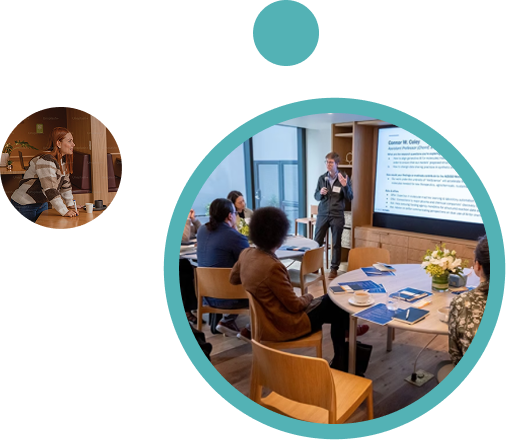Philip Torr
Professor Philip Torr did his PhD (DPhil) at the Robotics Research Group of the University of Oxford under Professor David Murray of the Active Vision Group. He worked for another three years at Oxford as a research fellow, and still maintains close contact as visiting fellow there. He worked for six years as a research scientist for Microsoft Research. He then became a Professor in Computer Vision and Machine Learning at Oxford Brookes University. In 2013, Philip returned to Oxford as full professor where he has established the Torr Vision group. He has won several awards including the Marr prize (the highest honour in vision) in 1998. He is a Royal Society Wolfson Research Merit Award Holder. He has been involved in numerous spin-outs as founder or advisor including: FiveAI, Onfido, Oxsight, Eigent, DreamTech, Visionary Machines, CamelAI, Orphic as well as working closely with big tech companies like Google, Meta, Apple, Microsoft, and Sony. He was elected Fellow of the Royal Academy of Engineering (FREng) in 2019, and Fellow of the Royal Society (FRS) in 2021 for contributions to computer vision. In 2021 he was made Turing AI world leading researcher fellow.
AI2050 Project
Torr’s AI Historian project seeks to extend the frontier of artificial intelligence from the natural sciences into the humanities by creating an AI system capable of historical reasoning. Working with world leading Oxford colleagues in history, anthropology and economics, he will develop a framework that allows AI to interpret texts, maps, images, and archaeological data to test competing explanations for how cultures evolve and societies endure. By combining causal discovery, multimodal foundation models, and agent-based simulation, the project will enable AI to evaluate evidence, reconstruct missing data, and explore question for social good such as “What makes societies more cohesive?” All software and datasets will be open source, transforming digitized archives into living laboratories for understanding human cooperation and societal change—and establishing the foundations of a new paradigm of quasi-autonomous AI social scientists.
Professor, University of Oxford
Hard ProblemGreat Opportunities


